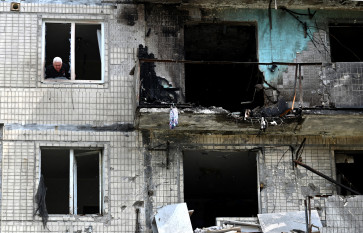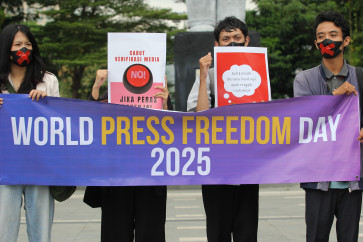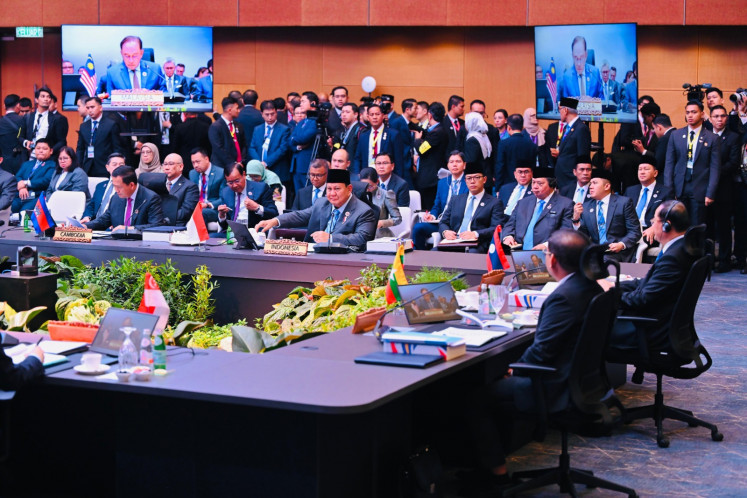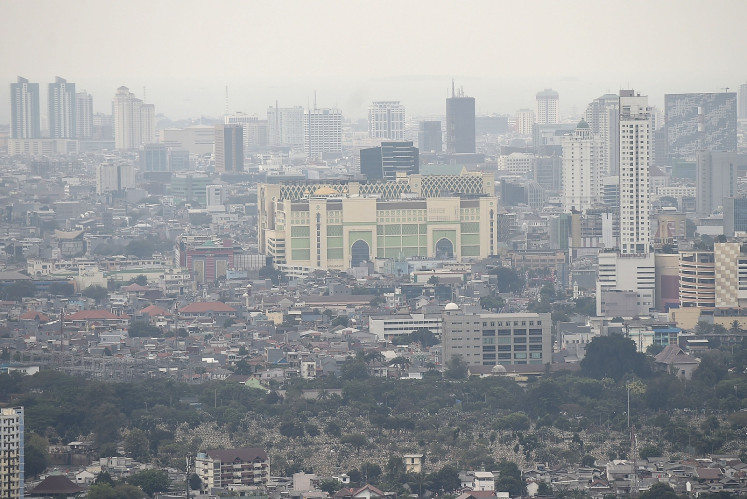Weak exports priority in next BI meeting
Bank Indonesia (BI) says that Indonesia faces the major challenge of how to boost its languid exports, interpreted by analysts as a sign that the central bank may refrain from raising benchmark rates in its crucial board of governors’ meeting next week
Change text size
Gift Premium Articles
to Anyone

B
ank Indonesia (BI) says that Indonesia faces the major challenge of how to boost its languid exports, interpreted by analysts as a sign that the central bank may refrain from raising benchmark rates in its crucial board of governors’ meeting next week.
Weakening exports and slowing inflation are expected to be the major issues discussed by the central bank’s top officials during the meeting. Indonesia booked US$248.5 million of trade surplus in August, its first in four months after suffering a trade deficit in the months following April. However, this surplus has been attributed to the decline in the import of capital goods due to the Idul Fitri holiday rather than an improvement in exports.
Due to the weakening in global demand, because of the stalling economic recovery in Europe and US, Southeast Asia’s largest economy recorded only $14.12 billion in exports in August, down 12 percent from its previous month, the Central Statistics Agency (BPS) reported.
“Our main focus now is how to increase our exports,” BI spokesperson Difi Johansyah said Thursday on the sidelines of the central bank’s event held at the University of Indonesia (UI) Depok campus, West Java.
“Curtaining imports means curtaining economic growth. If we try to push down our imports, then our economic growth will decline as well,” said Difi, adding that the surge of imports is a logical consequence of Indonesia’s robust economic growth.
BI’s statement is a sign that the central bank “will give space for further rupiah depreciation,” CIMB Niaga economist Wisnu Wardana said. He explained that BI would tolerate weaker currency to stimulate the country’s weak exports, predicting the rupiah to hover at 9,600-9,700 per dollar by the end of the year.
The rupiah, the worst performer among Asia’s 11 most active currencies, was traded at 9,590 on Friday, according to BI mid-rate.
Inflation is also expected to become one of the major talking points during the board of governors’ meeting.
Monthly inflation stood at 0.01 percent in September, its lowest level in five years, but analysts say that the central bank will remain watchful over inflationary pressures in the upcoming months as the low inflation is merely caused by seasonal, rather than fundamental, factors.
“BI has limited space to adjust its monetary policies” said Bank Internasional Indonesia (BII) economist Juniman. “In October, we will have harvest season, while in November and December, we will also have several seasonal festivities that might put pressure on the inflation rate”.
Despite being faced with inflationary threats in the upcoming months, BI is unlikely to raise its benchmark rate during the next board of governors’ meeting as the central bank remains wary over pressure on the country’s trade balance that stems from its lethargic export performance, Juniman argued.
“I think BI will keep its policy rate unchanged at 5.75 percent next week. We predict the rate to stay at the same level until the end of this year,” he said. Raising the benchmark rate will push up domestic banks’ lending rates, consequently dampening the business activities of Indonesian exporters.
At 5.75 percent, the benchmark rate is currently at a historic low, with BI already steadily retaining the rate for seven consecutive months, deeming it still in line with the central bank’s objective to keep Indonesia’s annual inflation at 4.5 plus-minus 1 percent level. (sat)









